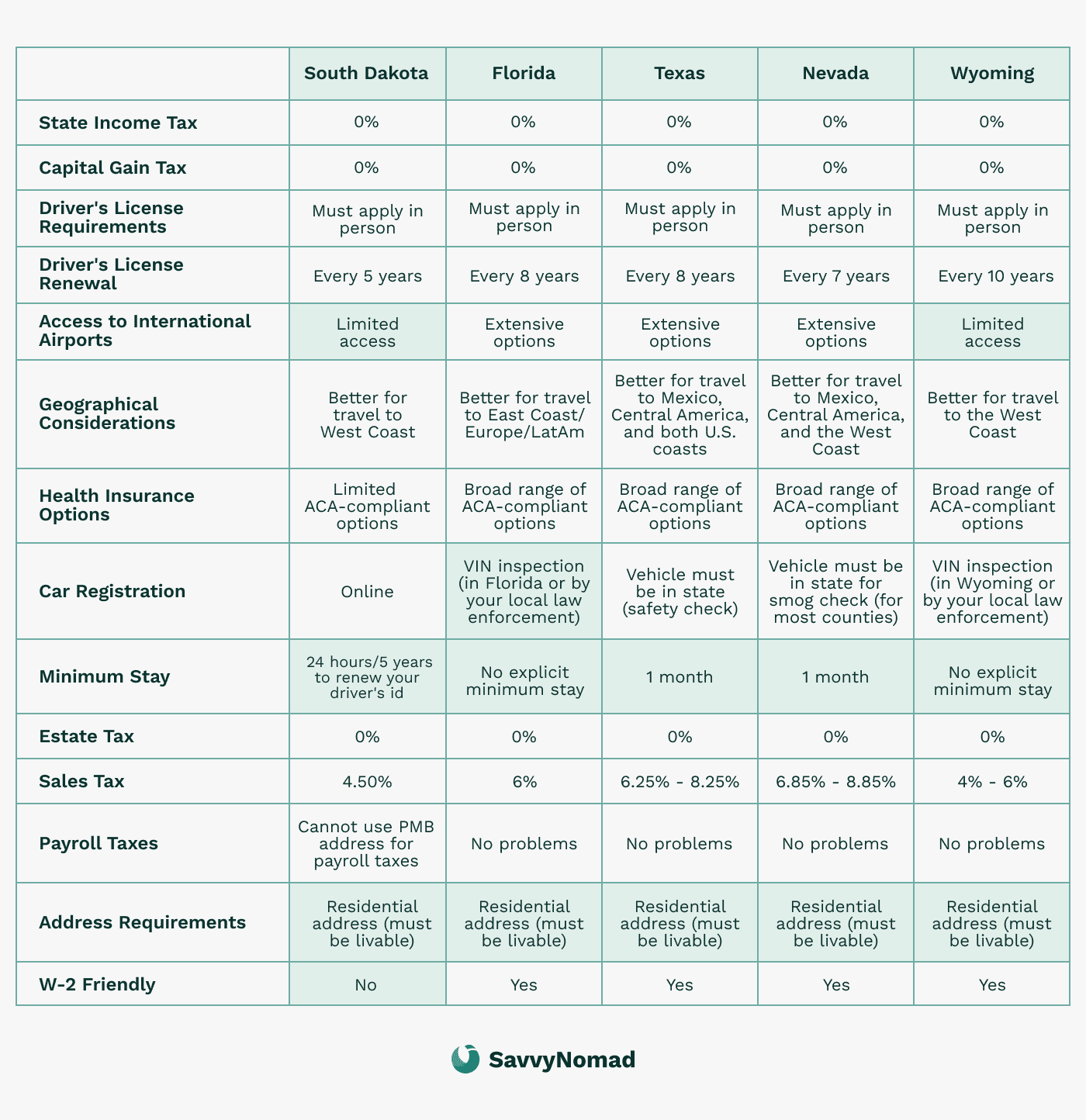How to leave Oklahoma residency?

Leaving Oklahoma residency can be a smart move if you're looking for lower taxes, new job opportunities, or simply a change of scenery. Oklahoma taxes its residents on their worldwide income, so if you're planning to move to a state with no income tax, like Florida or Texas, it's important to know how to officially cut ties with Oklahoma.
This guide will walk you through the steps needed to establish a new domicile, sever your ties with Oklahoma, and handle any Oklahoma-sourced income after your move. Following these steps can help make the transition smoother and reduce the risk of unexpected taxes.
Step 1: Establish a new domicile
The first step to leaving Oklahoma residency is to set up a new permanent home in your new state. It’s more than just physically moving—there are several important actions you need to take to show that your new state is where you truly live.
Here’s how to get started:
1) Establish new residency
- Secure a residential address: Find a place to live in your new state, whether it’s through renting or buying a home. Many states, like Florida, offer tax benefits such as the homestead exemption, which could help lower your property taxes. Setting up a permanent residence in your new state is essential to proving that you’ve left Oklahoma.
The address is provided solely for documentary and correspondence purposes related to client-direct banking or brokerage verification; it is not for business registration, public listing, or general mail forwarding. Banks and state agencies make their own decisions, no specific outcome is guaranteed, and prior-state rules may still apply.
- File a Declaration of Domicile: Some states, like Florida, allow you to file a Declaration of Domicile, a legal document that confirms your intent to make the new state your permanent home.
Residency guides:

2) Relocate your belongings
Moving your personal belongings—like furniture, vehicles, and household items—helps show that your move is permanent, and that you intend to live in the new state long-term.
3) Spend time in your new state
Spending significant time in your new state shows you’ve made a real move. Make sure you’re spending more time there than in Oklahoma to avoid any confusion about where your primary residence is.
4) Transfer IDs and vehicle registrations
Update your driver’s license and vehicle registration to reflect your new address in your new state. This is a strong indicator of your intent to live there permanently.
5) Register to vote
If you are eligible, you may register to vote in your new state. Voter registration is one supporting indicator of residency—not determinative on its own. For eligibility and procedures, follow guidance from election officials in both states, and if you are eligible to vote in the new state, you can also cancel your voter registration in Oklahoma.
6) Update financial accounts
Notify your bank, credit card companies, and other financial institutions of your new address. Keeping all your financial documents up to date with your new residency helps confirm your move.
7) Notify your employer
Let your employer know about your new address so they can update your payroll and tax withholdings to your new state. This will help make sure Oklahoma doesn’t withhold state income taxes after your move.

Step 2: Sever ties with Oklahoma
Once you’ve established a new domicile in another state, it’s important to officially cut ties with Oklahoma to help demonstrate that you’re no longer a resident for tax purposes.
Here’s how to go about it:
1) Close Oklahoma financial ties
- Close local bank accounts: If you have any bank accounts or financial assets based in Oklahoma, consider closing them or transferring the funds to banks in your new state. This shows that your financial life is now centered in your new state, not Oklahoma.
- Update personal records: Update your address with the IRS, Social Security, and any other relevant entities. Keeping all personal and financial records in your new state helps solidify your move.
2) Sell or lease property
If you own a home or property in Oklahoma, selling it or leasing it on a long-term basis can help demonstrate that you no longer intend to live in the state.
3) Cancel local subscriptions/services
Make sure to cancel any subscriptions or memberships tied to Oklahoma, such as gym memberships, utilities, or local services. Keeping these active could suggest that you still have ties to the state.
4) Transfer healthcare and insurance
Transferring your healthcare providers and insurance to your new state shows that your essential services are now tied to your new domicile.

Step 3: Time spent outside Oklahoma
To avoid being taxed as a resident in Oklahoma, it’s important to manage both your ties and the amount of time you spend in the state. Under Oklahoma law, residency is based on domicile, and there is also a separate day-count rule for non-domiciliaries.
Oklahoma day-count rule
- Track your visits: Keep detailed records of when you enter and leave Oklahoma, including flight tickets, hotel receipts, and travel logs, so you can substantiate your day count if your residency is ever reviewed.
- Manage your days: If you’re trying to avoid being treated as an Oklahoma resident after you move, aim to keep your days in Oklahoma under that “more than seven months” threshold and maintain clear evidence of your new domicile. Day count is only one factor—domicile and other ties (property, family, driver’s license, etc.) still matter.
- Resident definition: An Oklahoma resident is generally a person who is domiciled in Oklahoma for the entire year. In addition, any other natural person who spends, in the aggregate, more than seven months of the taxable year in Oklahoma is treated as a resident for income-tax purposes.
Keep detailed travel records
- Why it’s important: If your residency status is ever questioned, having detailed records of your time spent in and out of Oklahoma will be essential for proving that you’ve stayed under the 183-day limit.
- What to track: Save flight tickets, hotel receipts, and any other travel documents that show when you entered and left Oklahoma. Having a detailed log of your movements will be helpful if your residency status is ever audited by Oklahoma’s Department of Revenue.
Step 4: Oklahoma-sourced income
Even after you’ve officially left Oklahoma residency, you may still have some income tied to the state, such as rental income or business revenue. It’s important to know how to handle Oklahoma-sourced income to remain compliant with state tax laws.
Here’s how to handle Oklahoma-sourced income once you’ve moved:
1) Ongoing tax responsibilities
- File non-resident tax returns: If you continue to earn income from sources within Oklahoma, such as rental properties or businesses, you’ll need to file non-resident tax returns. This helps Oklahoma tax only the income you earned within the state, not income from your new home state.
- Tax on Oklahoma-sourced income: Even though you are no longer a resident, Oklahoma still has the right to tax income generated within the state. This could include wages earned in Oklahoma, rental income, or profits from Oklahoma-based businesses.
2) Rental or business income
If you own rental property or a business in Oklahoma, any income generated from those sources will still be subject to Oklahoma state taxes. It’s important to consult with a tax professional to stay compliant with Oklahoma tax laws, especially if you have complex income streams that tie back to the state.





